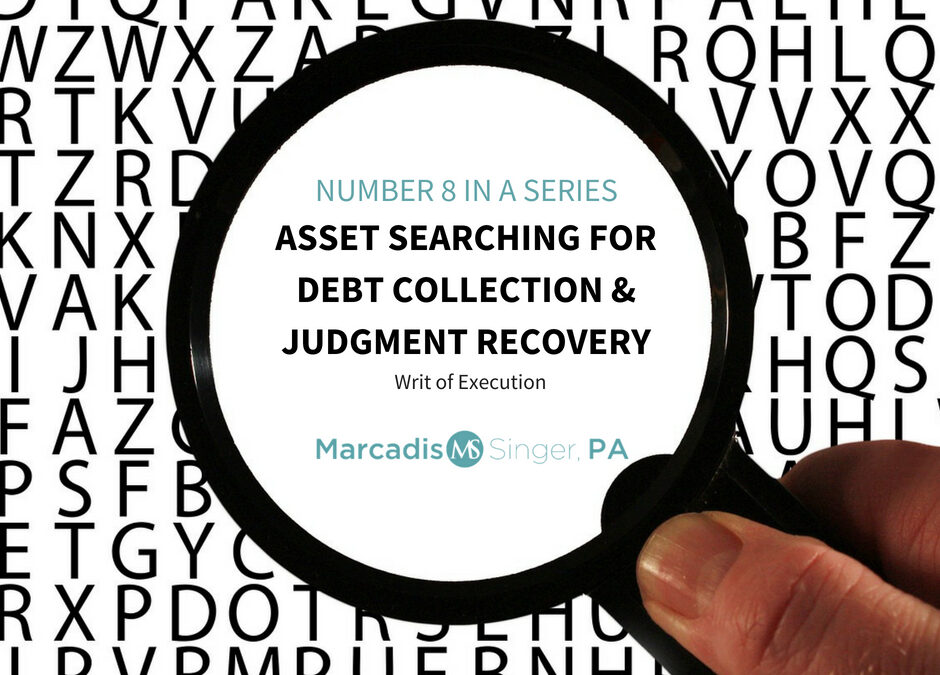Writ of Execution
Too often, those with a Florida Judgement find themselves frustrated that they worked long and hard for a piece of paper that seems to get them no closer to getting paid. If there are saleable assets, and a judgment, then requesting the judge for a Writ of Execution will allow the debtor’s non-exempt property to be seized and sold to satisfy the debt.
Exempt property
- Your home – if it is homestead – except by the mortgage holder or a lien holder.
- Up to a 1/2 acre of land around your home, or 160 acres is you live in an unincorporated area.
- Personal Property – you have the right to claim a personal property exemption of up to $4,000 per person
- You also can claim an exemption of up to $1,000 of the value of your vehicle
- (You can combine the $1,000 vehicle exemption with the $4,000 personal property exemption. In this case, for example, you would be able to claim a total exemption of $5,000 for your vehicle.)
- Wages. Not more than 25% of wages can be claimed by the creditor, and If a person makes $750 or less per week in net wages, and the person is a head of family, those wages are exempt from collection.
Those who are owed a debt (creditors’) have a reasonable right to be paid. The goal of the law is not to leave debtor’s penniless, but to ensure that debts are paid while leaving the debtor an ability to continue earning a living, and paying for essentials.
At Marcadis Singer, PA, we will pursue payment of the debt owed to you to whatever extent it is economically rational to do so.
